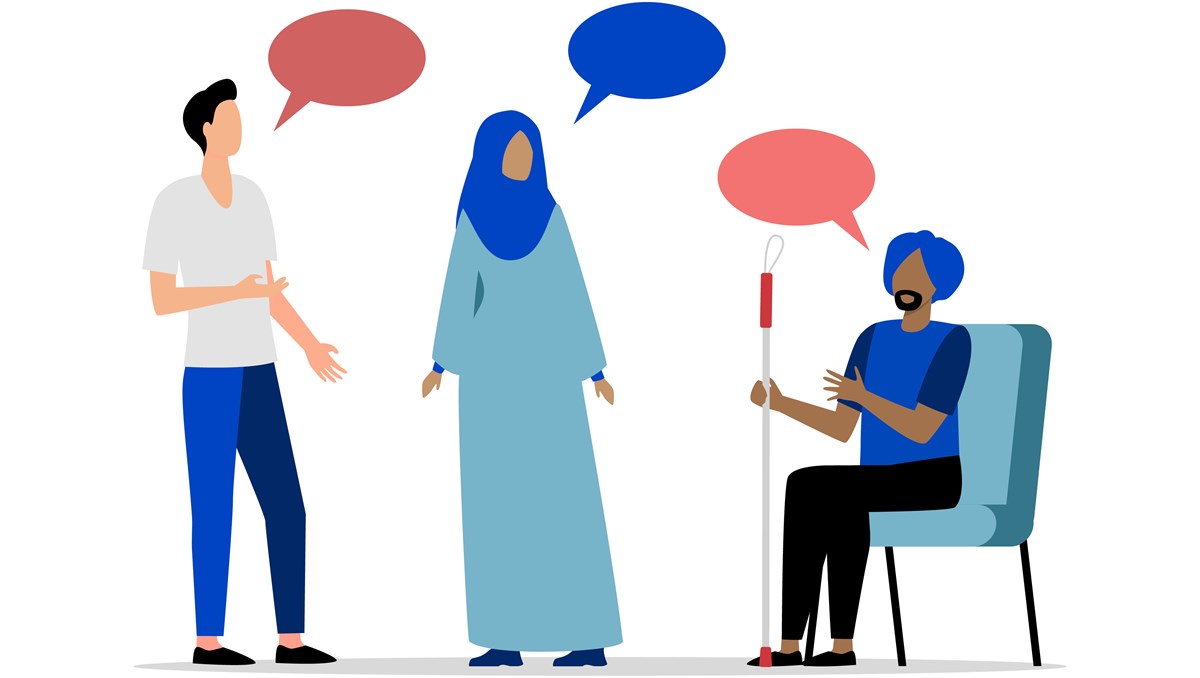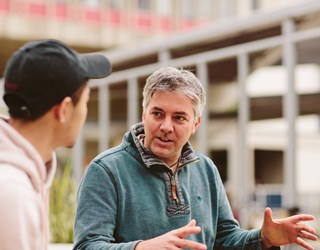Dealing with difference: why workplace relationships aren’t always easy
Leonie Hurrell discusses how teachers and education staff can feel connected and supported through positive social relationships at work.
Articles / 6 mins read

As humans we are naturally social creatures. This can be especially true for people working in education who are often self-described ‘people-people’.
Psychologists recognise that the desire to feel connected to others is a basic human need. Interpersonal relationships have a significant impact on our mental health, behaviour and physical health (Umberson & Montez, 2010). This is equally true in our personal and professional lives. In short, good work relationships really matter.
We are wired to be highly responsive to social interactions, when we connect, the brain releases oxytocin, a powerful hormone shown to reduce stress and promote growth and healing. In complete contrast, negative connections between our colleagues (characterised by animosity, exclusion, or avoidance) can cause unhappiness, stress and job dissatisfaction. In some research it was suggested that when individuals experience social pain in the workplace (from feeling isolated, for instance) the region of the brain that is activated is the same as when physical pain is experienced. (Dunbar 1998)
It is vital then for our own wellbeing, happiness and overall effectiveness that we feel connected and supported through positive social relationships at work.
Understanding our relationships
As with any interpersonal relationships, those formed in the workplace vary in quality. Some people will always seem easier to get along with, while others may pose more of a challenge. This is a normal part of life, but that doesn’t mean it won’t affect us.
On occasion we can encounter a colleague who we can’t really relate to or who annoys and frustrates us. While it can be tempting to avoid contact with a colleague like this we risk increasing levels of hostility which can have devastating effect on our working relationships.
How can we build relationships that are a source of enrichment that will enable us and our schools flourish?
There is a science behind understanding our relationships. Good workplace relationships come from having an accurate understanding of ourselves and others. If we want to build better relationships with colleagues it ultimately starts with us.
Different personality types
A brilliant tool for recognising our own personality preferences and traits is the highly regarded DISC® personality assessment. DISC® has been built on 40 years of research and supported 40 million people world-wide with their self-awareness and connections. It enables us to understand ourselves so that we can build authentic and productive connections with others and helps us to know that although we behave ‘differently’, we can choose to better understand ‘difference’.
DISC® recognises that although we are different, we are predictably different. Have you noticed that an incredibly focused and direct school leader keeps bristling with that more emotional and sociable classroom teacher? Both bring huge amounts of value to the school and the children’s lives, but neither understand how their personalities are consistently different, or how to get the best out of each other. DISC is a great tool for helping to understand our differences and adjust our interactions going forward.
There are the four mains DISC personality types they are each either Active or Passive and Task-Oriented or People-Oriented. When combined in different ways, you get a person who responds drastically differently to a particular conversation, assignment, task or environment. There are the four main DISC® personality types:
The Dominant "D" type -(Active & Task Orientated) An outgoing, task-oriented individual who will be focused on getting things done, accomplishing tasks, getting to the bottom line as quickly as possible and making things happen. The key to developing a relationship with this person is they want to be respected and need results. When communicating with ‘D-types’ it’s important to remember that they like directness, honesty and a focus on the end result.
The Inspiring "I" type – (Active & People Orientated) An outgoing, people-oriented individual who loves to interact, socialise and have fun. This person is focused on what others may think of him or her. The ‘I’ type is creative and full of ideas and positivity. The key insight in developing a relationship with the ‘I-type’ person is that they like to be recognised for their ideas and praised for their efforts.
The Supportive "S" type – (Passive & People Orientated) A reserved, people-oriented individual who will enjoy relationships, helping or supporting other people and working together as part of a team. This person is loyal and likes the security of the known. The key insight in developing a relationship with the ‘S-type’ person is to be friendly and authentic, they like others to be thoughtful and to understand them.
The Cautious "C" type – (Passive & Task Orientated) A reserved, task-oriented individual will seek, consistency and quality information. This person focuses on being correct and accurate. The ‘C’ type enjoys the details and can like things to be perfect. The key insight in developing a relationship with this individual is being logical and diplomatic.

The DISC® model is a great framework for understanding people. DISC is not a diagnosis or a way to ‘label’ someone, but is a tool for dialogue and how to get the best from people.
Accepting and embracing differences
Understanding how we are is important if we are going to build positive relationships. For example, I’m a naturally outgoing person, ‘I-Type’, who loves to talk, be with people and have ideas. I need to be aware though, that this can appear brash and could drive more ‘S-type’ people into their shell. I know that and I can subtly adapt to keep our interactions functioning well.
However, when working with someone who is more detail orientated a ‘C-type’ they may find my pacy, chatty ideas irritating, likewise I may find their focus on needing detailed information equally frustrating. Instead of being frustrated I now understand that to make my ideas work I need the accuracy and careful planning of a ‘C-type’ person. I recognise that I can work with my colleagues to make things happen more successfully than if I were to implement them solely, welcoming the difference that other colleagues can bring. When I understand that someone will behave differently to me and my expectations, I can accept and welcome those differences.
It takes all types of people to run a school, and build good relationships with the range of children within it. If someone if different to us, it doesn’t mean that one is right and the other wrong. It also doesn’t mean that we can’t get on and have a flourishing work relationship. By understanding ourselves and others we can work on getting the best out of our day to day relationships, which will help everyone to be as happy as possible.
"It is not our differences that divide us. It is our inability to recognise, accept, and celebrate those differences."
Audre Lorde
Leonie Hurrell is is a former headteacher with over 15 years of senior leadership experience. Since completing her ILM coaching qualification in 2015, Leonie founded The Thinking Academy providing ILM recognised coaching training and one to one coaching support in schools across England. She has worked as a freelance Educational Facilitator specialising in leadership development, learning culture, emotional wellbeing and coaching. She regularly supports aspiring headteachers on NPQ leadership programmes as an approved Coach and is an Associate for the charity Education Support, which supports the mental health of teachers in the UK.
Don’t wait for a crisis to call.
We’ll offer you immediate, emotional support.
08000 562 561

Sign up to our newsletter for the latest mental heath and wellbeing resources, news and events straight to your inbox.





















